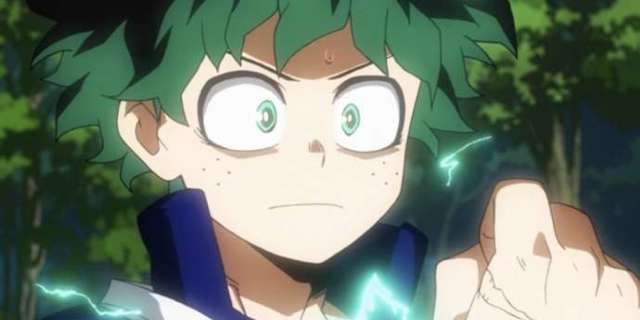Since My Hero Academia debuted, the series has tried to give its own spin on the superhero genre, and that includes the powers which go with it. Creator Kohei Horikoshi used his love of comics to bolster the work with each chapter, but its English translators also carry a fair burden with their turnaround. Over on Twitter, the official translator for My Hero Academia decided to explain one of their biggest translation choices, and it reveals why Quirk was the best name for the series’ many super powers.
Recently, Caleb Cook shared his explanation with the world after a tweet asking about the term ‘quirks’ went viral. A fan wanted to know why quirk was chosen over a few other translations, and Cook revealed there were numerous reasons.
“Not dunking on this person, but: It’s punchy! “Uniqueness” is snoozeville, “idiosyncrasy” is a mouthful (six syllables), “individuality” is SEVEN syllables. Long words are death for English manga lettering (splicing everywhere), and this is a term being used over and over,” he said.
Not dunking on this person, but:
-It’s punchy! “Uniqueness” is snoozeville, “idiosyncrasy” is a mouthful (six syllables) “individuality” is SEVEN syllables. Long words are death for English manga lettering (splicing everywhere), and this is a term being used over and over. pic.twitter.com/wBZJsy1CTK
— Caleb Cook (@CDCubed) March 8, 2020
“SEO (search engine optimization). Go ahead and google “quirk”. You get an MHA-related hit in the top 5 results,” Cook continued before adding a very important distinction which the manga needed to make.
“Storywise, the choice to go with “Quirk” is very much validated (after the fact) by the in-world history of the term. “Meta (ability)” sounds more like a clinical classification, to distinguish superhumans from normies. “Meta” is othering but “Quirk” is normalizing. Everyone’s got their own (lowercase-q) quirks, and now, almost everyone has an (uppercase-Q) Quirk. It’s the new normal,” he wrote.
“That history lesson didn’t come until ch232, but the gist was clear from the start. Horikoshi could have used “superpower” or “mutation” but it was a deliberate, creative choice on his part to play it down with the more low-key “kosei.” The English needed to reflect that.”
Clearly, a lot of thought went into the use of quirk, and Cook does say the My Hero Academia fandom had adopted the term unofficially before an official translation was ordered. The differentiation is key for later chapters as reader know now, and the need to localize the term ‘kosei’ from Japanese perfectly suits English readers. Sure, the translation might not be exactly perfect, but it has since come to define the essence of My Hero Academia. And without it – well, Horikoshi’s series just would not be the same.
Do you like how the original term was translated? Would you consider changing it? Let me know in the comments or hit me up on Twitter @MeganPetersCB to talk all things comics and anime!
Did you know ComicBook.com has a Pokemon podcast? That’s right folks, A Wild Podcast Has Appeared is available every Thursday bringing you the best breakdowns of the week’s biggest news from Jim Viscardi, Megan Peters & Christian Hoffer. Catch the newest episode right here or subscribe on iTunes today!
Disclosure: ComicBook is owned by CBS Interactive, a division of ViacomCBS.

